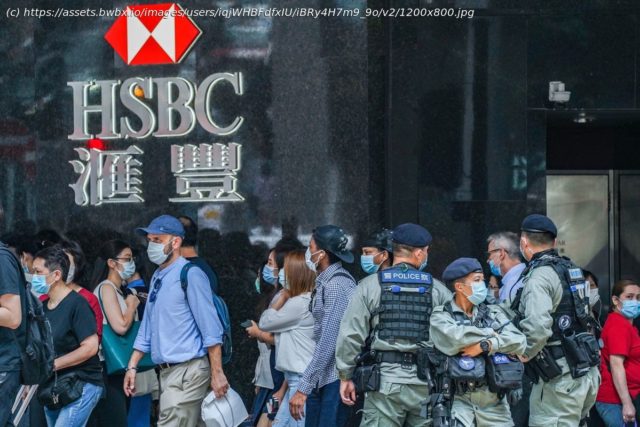By supporting the national security law, the British-based bank is pointing to an even bigger shift of its resources to China. But at what cost?
HSBC Holdings Plc is stuck between a rock and a hard place. Hong Kong is the London-headquartered bank’s biggest profit generator and the sprawling giant has increasingly been caught up in the escalation of tensions between China, Hong Kong and the West. If that weren’t enough, HSBC is in the midst of a long-overdue restructuring that’s been complicated by the Covid-19 pandemic’s economic fallout.
By joining the ranks of Hong Kong business interests that are backing the Beijing-sponsored national security law, which is opposed by the U. K., HSBC is pointing clearly to an even bigger shift of its resources to China. But at what cost?
On Wednesday, Peter Wong, HSBC’s top Asia executive, signed a petition in support of China’s proposed legislation, according to comments posted on the bank’s official WeChat account. Unusually, this was done under Wong’s name rather than the company’s, in contrast to similar messages from other local corporate stalwarts, including Standard Chartered Plc, Jardine Matheson Holdings Ltd. and Swire Pacific Ltd.
Using Wong, rather than HSBC Chairman Mark Tucker or newly appointed Chief Executive Officer Noel Quinn, doesn’t mask the fact that the bank is clearly showing its allegiances. It had little choice: HSBC counts on the former British colony for 54% of its profit and about one-third of its global revenue. The bank is a huge Hong Kong employer, with about 50,000 staff, including its Hang Seng Bank subsidiary, and it dominates local banking.
It’s been navigating these treacherous geopolitical waters for decades, and the past 18 months have been no exception.






